Craft your 2-minute vlog SPeech...Helpful Links for Today's Class: How to videos & Exemplars:
Record a 2-minute vlog post...Find a quiet spot somewhere in the high school building (do not disturb other classes) and find a place to record your video... FAQs for this Summative: How long can my video be? You should aim for 2 minutes (+/- 10% rule) Where/how will I turn this in? You will post your video to SeeSaw Can I use a visual or slide? You may hold up an image, concept map while recording your video-- or-- screencast record a slide if you are doing more of a screencast video rather than recording yourself on screen. Do I have to be visibly in the video? You can either record yourself talking --or-- you can do screencasting. Screencasting will require words, at least one image (could be your concept map) and audio narration. Your audience playing the video needs something to look at. Are there any exemplars I can look at for this? There are not any exemplars for this specific assignment, but there are a couple of exemplars you can look at for what a “vlog” looks like. See the “Helpful Resources” listed above. Can I pretend to be a YouTuber? Absolutely! If you want to do a parody of John Green or any other Youtuber that's fine as long as you ensure your speech demonstrates your conceptual understanding of the concepts and you give supporting examples with evidence and talk about why this matters historically and/or is relevant today. Your classmates will see your video and so will your parents. Just be sure you've met the requirements as stated in the rubric. Exit Ticket -- add your video to seesawBe sure you add your video to SeeSaw before you leave!
But first, we will finish up the debate...
Today you will begin to pull together all the "Big Ideas" from what you have studied about conflict through examining 20th Century Conflicts. Task: Choosing two or more of the following concepts, create an argument that details the relationship between the concepts within the context of our investigation of Twentieth Century conflicts. *Macro Concepts: Values/Beliefs, Power, Conflict, Change *Micro Concepts: nationalism, imperialism, militarism, alliances, communism, nazism, fascism, authoritarianism Develop a claim statement based off of one of the following prompts:
On A3 paper, create a concept map on one side; plan your response:
Helpful Links for Today's Class: How to videos & Exemplars:
HW: Complete an outline/plan of your response.PRINT YOUR OUTLINE BEFORE CLASS NEXT PERIOD-- Bring it to class!!!
FAQs for this Summative: How long can my video be? You should aim for 2 minutes (+/- 10% rule) Where/how will I turn this in? You will post your video to SeeSaw Can I use a visual or slide? You may hold up an image, concept map while recording your video-- or-- screencast record a slide if you are doing more of a screencast video rather than recording yourself on screen. Do I have to be visibly in the video? You can either record yourself talking --or-- you can do screencasting. Screencasting will require words, at least one image (could be your concept map) and audio narration. Your audience playing the video needs something to look at. Are there any exemplars I can look at for this? There are not any exemplars for this specific assignment, but there are a couple of exemplars you can look at for what a “vlog” looks like. See the “Helpful Resources” listed above. Helpful Resources for Today:
HW: None! Yay!Prep for Summative Debates...Helpful Resources for Today's Class and for Preparing for Debate:
Tips for preparation:
Course Selection for your Sophomore Year: While there may be some additional non-AP/AT courses added to the course menu starting your Junior year, the current Course Program Planning Guide (PPG) will provide you with all courses currently scheduled and offered next year and the list of AP/AT courses available to you through graduation. It is important that you plan out which courses you plan to take for the remaining 3 years so that you are intentionally seeking the appropriate level of challenging coursework and balance to your course load. Some topics we will discuss today include:
Helpful resources for you to refer to in planning and selecting the appropriate courses for you:
Helpful Resources for Today's Class and for Preparing for Debate:
Sample Debate Speeches (Videos):
|
Mrs. Stewart's CourseYou'll find a daily agenda posted here for each day that class meets Archives
May 2020
Categories |
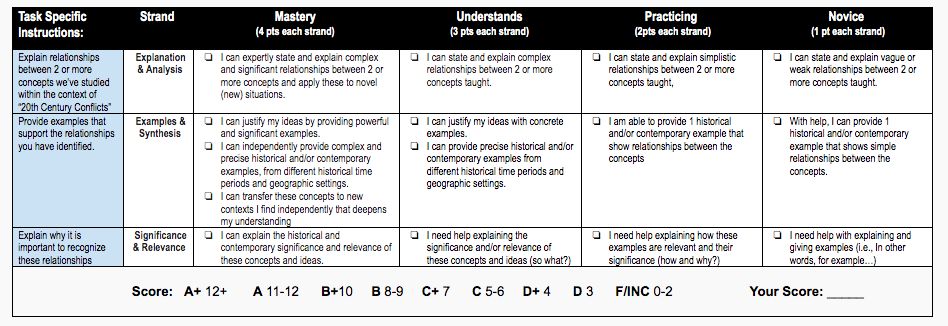

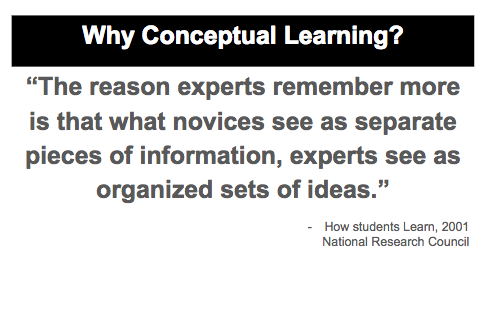
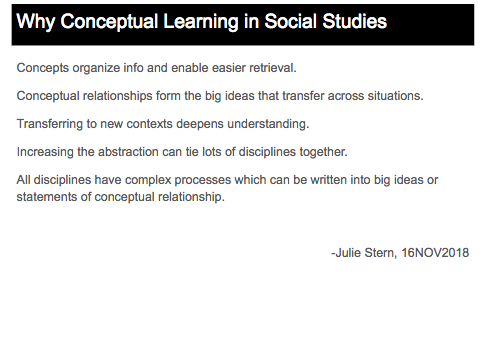
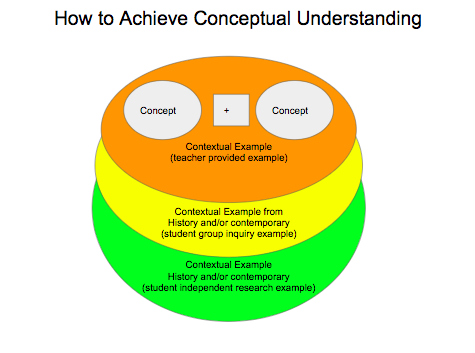
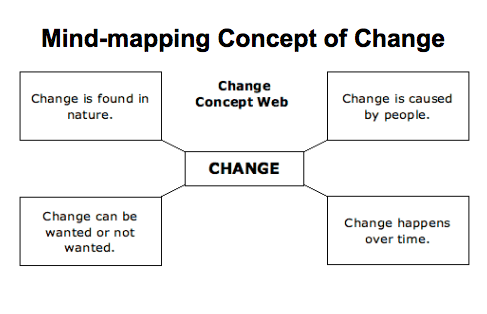
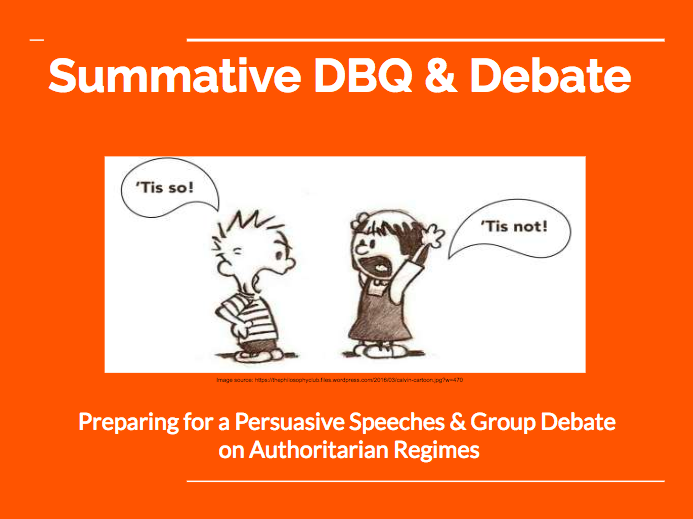
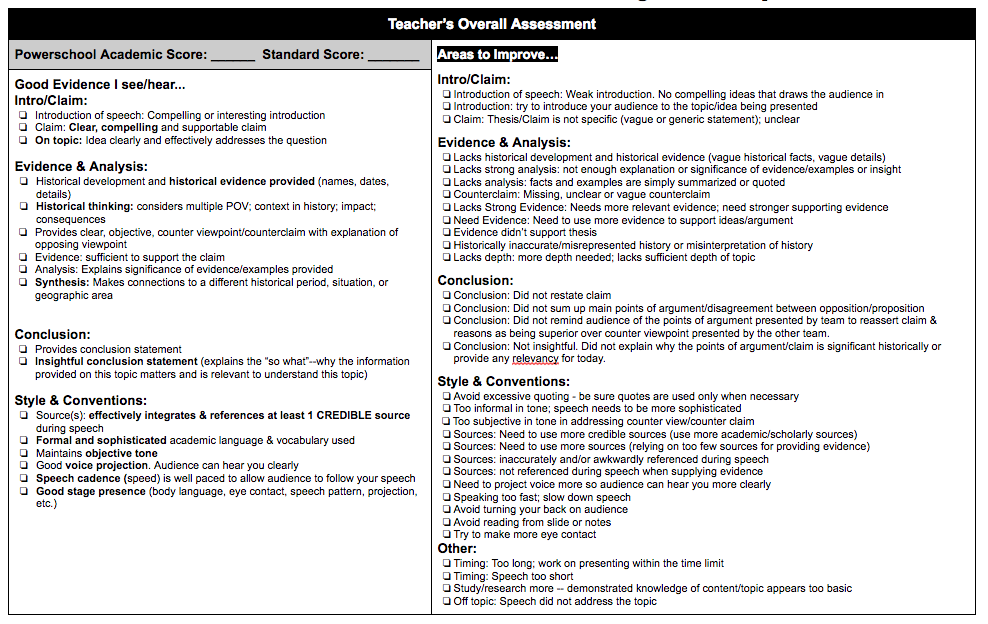
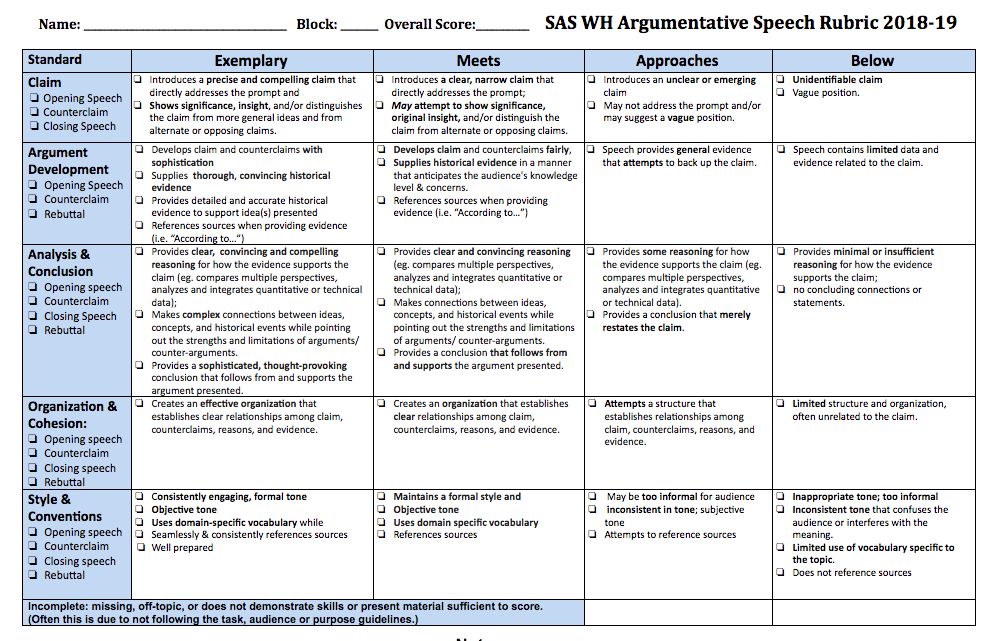
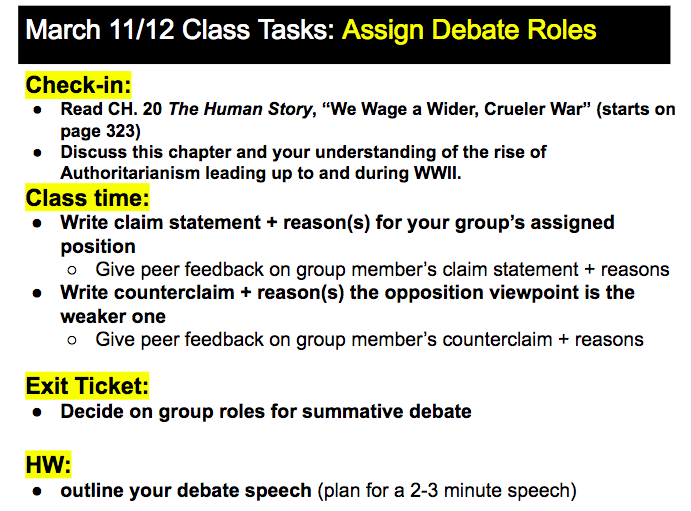
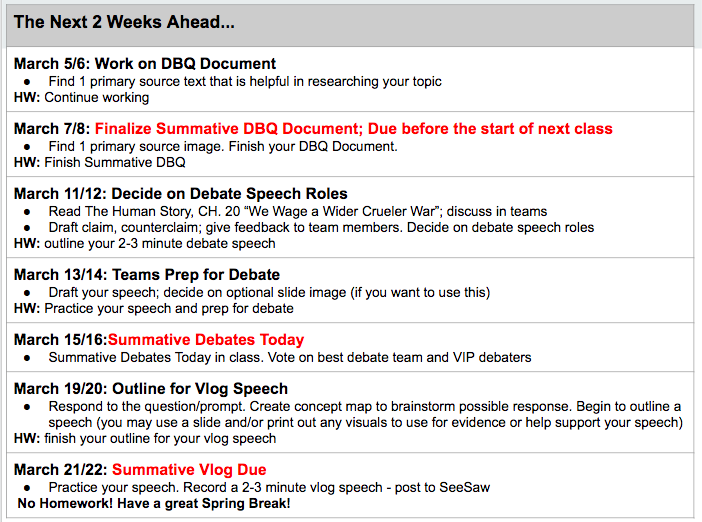
 RSS Feed
RSS Feed